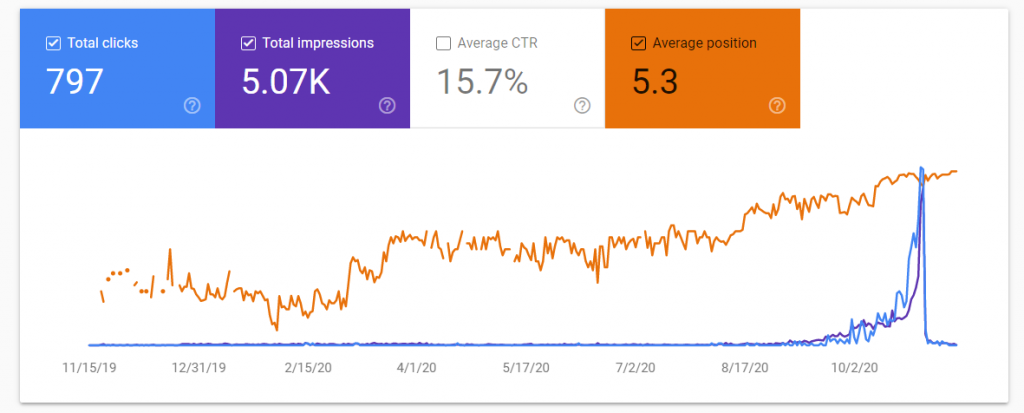
Every SEO team starts with a keyword. A keyword in which they see an immense potential even though there are hundreds of pages already ranking for it. Time flies and weeks later, they see their page ranking on Google but at lower positions that don’t even get clicks. The team leader thinks of optimizing the on-page and off-page factors. But even before they start optimizing the rankings go further down. The team gives up and move on to the next keyword. Time flies again and weeks later, they see that the page is getting traffic. They immediately check their targeted keyword, but they are still not ranking.
Similar cases happen with all SEO teams at one point or another. Well, you can’t always rank for the desired keyword. Ultimately it depends on the search engine, whether it finds the page useful or not. But there’s a catch. Sometimes, it doesn’t index your page for the desired keyword because it thinks it fits some other keywords better. So, without wasting any more of your precious time, let’s get started –
First, let’s see how Google generally ranks your webpage?
Note: This is basic for most SEOs who have already ranked for many targeted keywords. So, if you are a pro, then just move to the next sub-heading.
Below is the graph for a keyword that I currently rank at No. 1 position for my affiliate site –

The slope-kind rise-and-fall of clicks and impressions is seen because it is related to Halloween so, it was searched way more during the last week of October. And now that you already noticed, I ranked at far below positions at first. But with time (and many optimizations), the rankings went up and up to the top. This is how Google generally ranks a keyword.
But don’t forget! The graph is a general case that I notice how a page goes to the top position. It doesn’t mean your content will rank in a similar way. It totally depends on your site, content, and hundreds of other factors.
Still, the above case is for a keyword that I targeted. What about the pages which rank for keywords that I didn’t target?
Traffic Without Ranking For The Desired Keyword
To answer this I will take some insights from Kevin Indig‘s blog on How Google tests new content in the search results. I recommend you to follow his blogs as it will always increase your knowledge base on SEO. He publishes meaningful data that always interest SEO enthusiasts.
Now, back to the main topic, let’s check the image below –

As you can see, his blog focuses on Substack; that’s why his rankings increased and remained constant for Substack-related keywords. But at first, it was also ranking for the keyword ‘paid newsletter,’ and then the rankings went down. This is a clear sign to show that Google ranks a page depending on the keywords it finds related to the page. But then with time, it gets a better understanding and ranks it accordingly.
How can it benefit you?

It can benefit you by opening the gates for other longtail keywords related to the content on your page. Look whatever keywords you want to rank on, Google can find hundreds of other pages for each of that keyword. You have to provide something that’s better than the rest. Now, while trying to create the best content for a keyword ‘PQR’ you might end up with rankings on keywords loosely related to ‘PQR’ (also called LSI keywords in some cases). That still means you will rank, but not exactly for ‘PQR’.
Also, it is not always that the best content will rank at the top. We all know about the other factors such as Backlink Profile and Trustworthiness. But on the bright side, if your content still ranks for the LSI keywords, it means that your content quality is still good. Maybe the competition was very high or other contents were more related to the keyword that you targeted.
This also points the importance of Tech SEO. As google crawls your webpage better, the rankings may go up. And Tech SEO includes crawling and indexability as its prime objective, so that Google always find the best content on your site and the crawl budget is not wasted on unnecessary pages.
I had written many low-quality blogs, partly because of my poor writing skills as a beginner, and Google never indexed those. Not even for LSI keywords related to the primary keyword. But now my blogs get indexed (the main reason being improved writing skills), if not for the primary keyword, it indexes for LSI or related keywords. That means the content quality is indexable.
The blog is over, but you can continue till the final goodbye…
These were my thoughts on “How to Get Traffic without Ranking for the Desired Keyword.” I know I can add more to this blog post. That’s why I request you to comment if you have anything to share. And if you found any mistakes in my blogs or have any constructional criticism, please reach out through comments or contact page. Believe me. It won’t alter my blood pressure. I would love to write my wrongs (this mistake was intentional).
